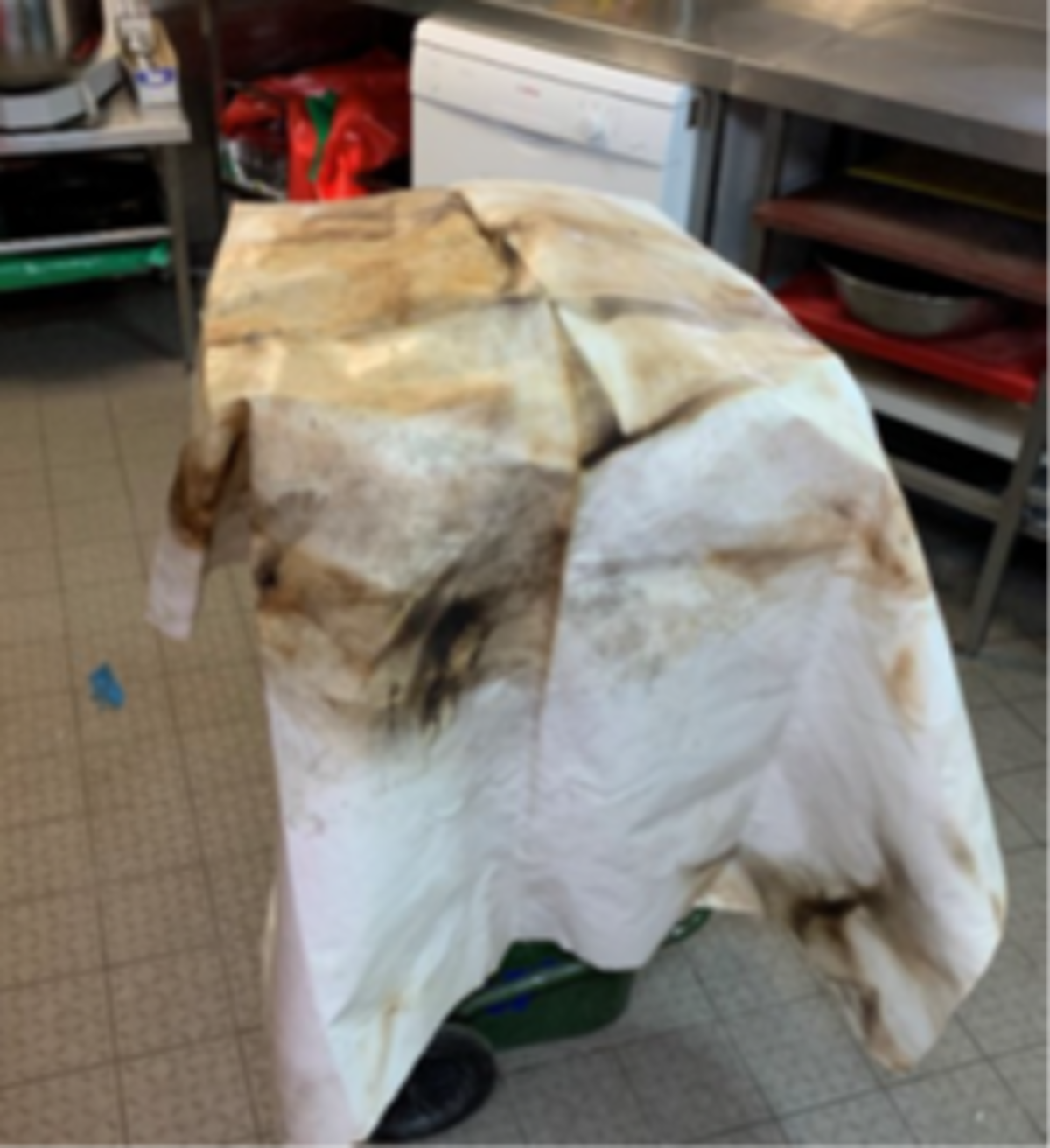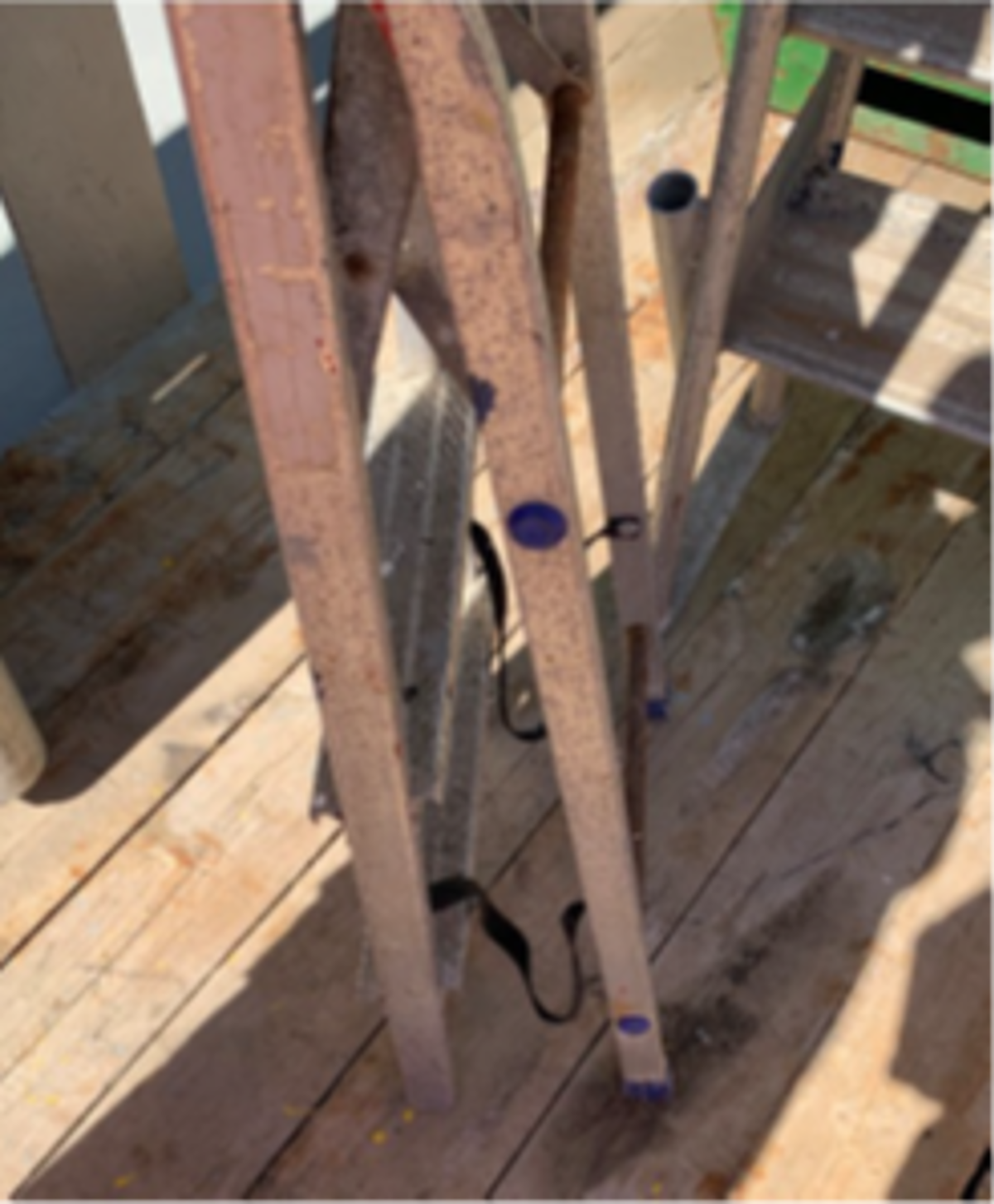Poor condition of on-board equipment
- Safety Flash
- Published on 30 January 2020
- Generated on 28 February 2026
- IMCA SF 03/20
- 2 minute read
Jump to:
What happened?
During ‘safety walk arounds’ on one of our Members’ vessels, certain equipment was seen to be in poor condition.
In the first case, a fire blanket in the galley; in the second, a portable step ladder.
Fire blanket
A galley fire blanket had been used for fire extinguishing and packed away again, but no incident report was made of a fire having taken place. It was clear that the fire blanket had not been inspected for a long period of time.
What were the causes? – Procedures not followed:
- Our Member's internal instructions for Master’s inspections and fire prevention requirements had not been followed.
- There had been no weekly inspection of fire blankets conducted by crew despite procedural requirements to do so.

What actions were taken?
- When conducting any inspection, ensure that all items on the inspection checklist are thoroughly checked – not ‘just a tick box exercise’.
- Any incident (such as a small fire in this case) however trivial should be reported immediately.
- Further inspections of all on-board safety equipment was indicated in this case.
Step ladder
A damaged ladder was observed as in use on the vessel deck during vessel walk around. Further inspection revealed another ladder in similar condition in regular use.
What went wrong?
- Signs of corrosion on ladder.
- Plastic support missing on bottom of ladder's legs.
What were the causes? – Procedures not followed:
- No regular and pre-use inspection of ladders established on-board.
- Fall prevention requirements not followed: inspect all ladders and lifting equipment regularly and perform the required maintenance.

What actions were taken?
- All on-board ladders to be inspected, numbered and labelled monthly.
- All damaged ladders to be removed from vessels and replacements ordered.
- Crew to be refreshed on the importance of conducting pre-start checks on all ladders.
Related Safety Flashes
-
IMCA SF 28/19
6 December 2019
-
-
IMCA SF 09/19
3 May 2019
-
-
IMCA SF 22/15
15 December 2015
-
IMCA SF 13/13
4 September 2013
IMCA Safety Flashes summarise key safety matters and incidents, allowing lessons to be more easily learnt for the benefit of the entire offshore industry.
The effectiveness of the IMCA Safety Flash system depends on the industry sharing information and so avoiding repeat incidents. Incidents are classified according to IOGP's Life Saving Rules.
All information is anonymised or sanitised, as appropriate, and warnings for graphic content included where possible.
IMCA makes every effort to ensure both the accuracy and reliability of the information shared, but is not be liable for any guidance and/or recommendation and/or statement herein contained.
The information contained in this document does not fulfil or replace any individual's or Member's legal, regulatory or other duties or obligations in respect of their operations. Individuals and Members remain solely responsible for the safe, lawful and proper conduct of their operations.
Share your safety incidents with IMCA online. Sign-up to receive Safety Flashes straight to your email.